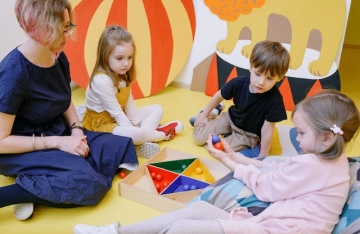It’s never far too early to begin developing your child’s literacy skills. It is simple but fun games to develop your child’s language and overall reading skills very fast and effectively. Good reading teachers can summarize what they are trying to do with any child at any particular age to improve their literacy skill. After all, knowing where the child is and what kind of game plan is needed to move them ahead, is essential.
This often-held mantra can be summarized with the following two very broad but important categories: As a child, you’re either “learning to read, or reading to learn”. But how can parentd help with strengthening a child’s reading skills?
Right now, let’s take a moment to properly focus on the “learning to read” aspect. As one would imagine, there are different methods to learn to rea., There’s no magic path to literacy. Yet, we do find that there are two main categories to teaching reading skill: explicit and implicit methods. Both are can become powerful tools, but let’s focus on explicit part for the moment. Explicit instruction is when you directly teach a concept to a child while the implicit instruction is a more indirect way of teaching a subject. So for example, we can explicitly instruct that the “f” sound should be spelled with a kind of “ph.”

The goal of any child reading session should be to use every tool available in the box to properly teach kids concepts and rules. We should hold nothing back in your instruction, especially instruction that is engaging.
Every child will enter an “emergent stage” of literacy development. It is the period where young children try to imitate and experiment with the forms and functions of printed or written information – either through scribbling, tracing, and slow drawing. Young and emergent readers are really busy shuffling the primary elements that are essential to spur literacy skills: directionality of text, the features of print, the predictability of a sentence, and how it all correlates with their oral language.
During this emergent stage, it’s a great time for exploration, which is what we want to properly encourage to our children in this period, as well as later periods. Games and other exciting activities are very instrumental here. Play time is also a learning time. For instructions, we should focus on simple but very effective ways that generates a happy respond: the use of rhymes, images, songs, flashcards, matching, sorting, and finding letters can all be considered games. Games are appealing to children and they encourage them to practice more in depth and apply everything that they have learned to real situations. Kids love to find ways to play and we need to tap into this desire.
For instructions, we should focus on simple but very effective ways that generates a happy respond: the use of rhymes, images, songs, flashcards, matching, sorting, and finding letters can all be considered games.
Games are appealing to children and they encourage them to practice more in depth and apply everything that they have learned to real situations. Kids love to find ways to play and we need to tap into this desire.
They can play by themselves or with close friends. But for the effectiveness of learning literacy skills, we will need to make sure that they have real play time with parents too. This parent-child time could be utilized for any kind of activities.




